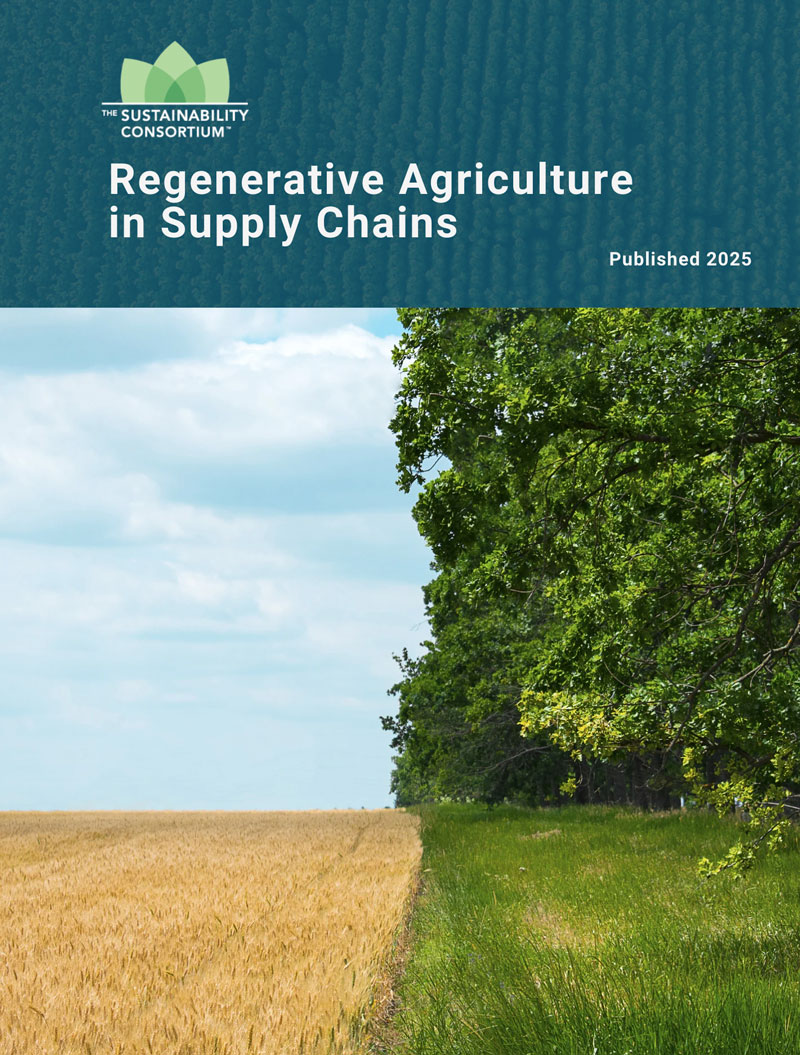Regenerative Agriculture in Supply Chains
Regenerative agriculture is reshaping how supply chains approach soil health, climate resilience, biodiversity, and farmer livelihoods. Drawing on THESIS data, this report highlights where progress is happening and where opportunities remain to scale regenerative outcomes across key commodities.
What the Science Tells us Regenerative Agriculture

Soil Health

Biodiversity & Habitat
Moderate reporting through pesticide and habitat indicators, but broader ecosystem metrics remain limited.

Water Stewardship
One of the strongest-performing pillars, supported by existing reporting systems and certifications.

Climate Resilience
Weakly represented in THESIS data; long measurement timelines and high costs remain barriers.

People & Livelihoods
Highest reporting rates across categories, especially in specialty crops with closer supplier relationships.
What is THESIS?
THESIS (The Sustainability Insight System) is a science-based platform developed by The Sustainability Consortium (TSC) to help companies measure and improve the sustainability of consumer products across their supply chains.
Launched in 2014 and updated annually, THESIS is built on life cycle assessment (LCA) methods and backed by TSC’s academic roots at Arizona State University and Wageningen University & Research. In partnership with Sphera Supply Chain Sustainability (formerly SupplyShift), THESIS is used by leading retailers and suppliers to drive transparency and responsible sourcing.




